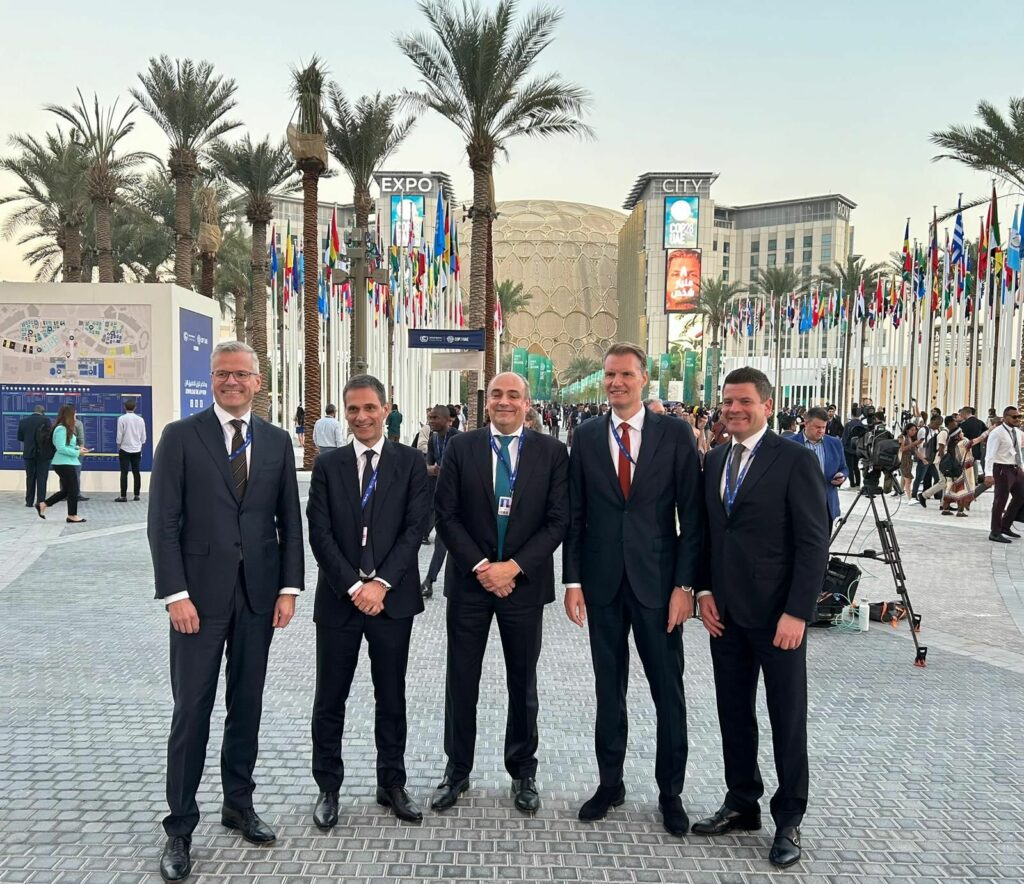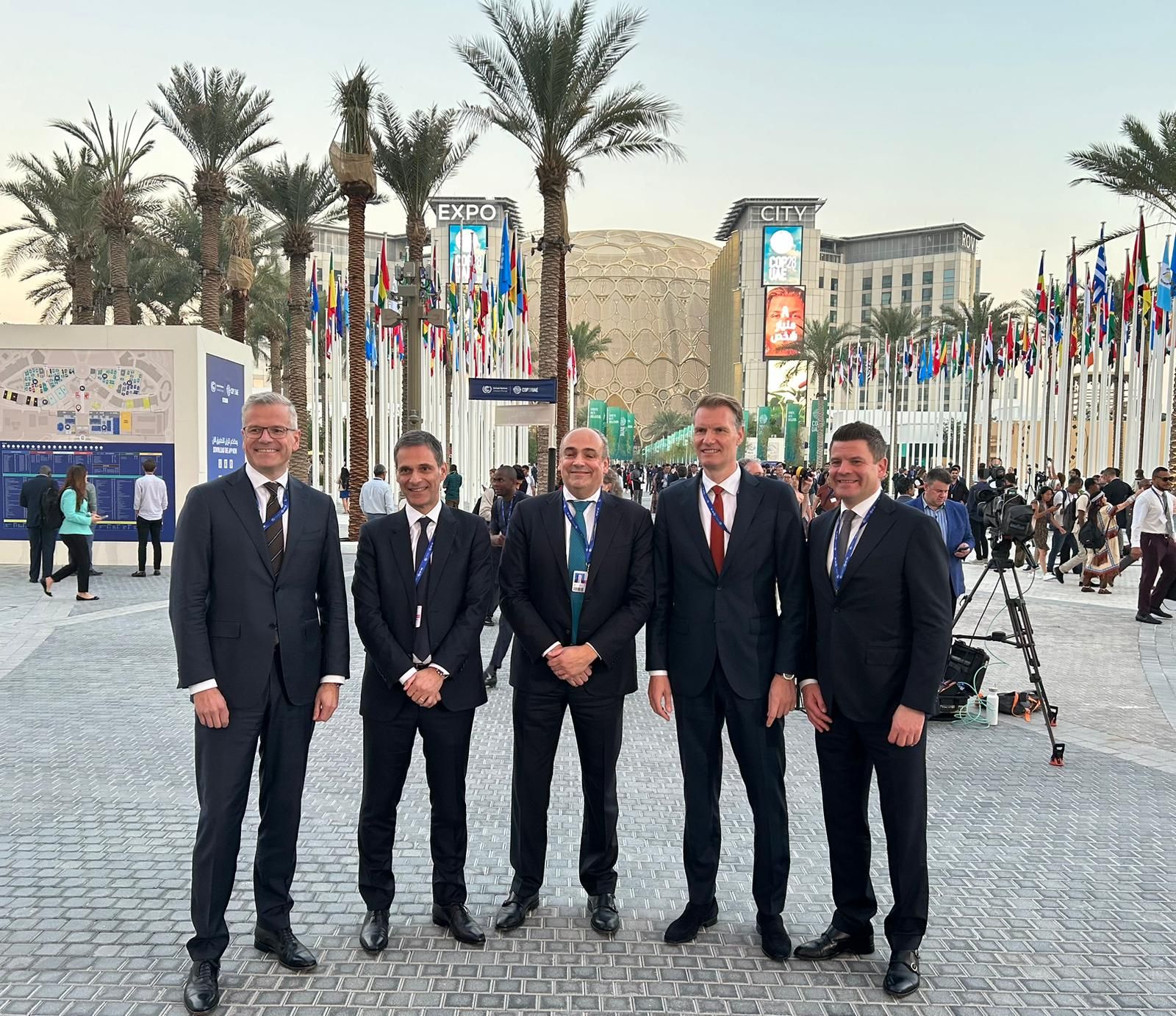
The Chief Executive Officers (CEOs) of leading global shipping lines A.P. Moller – Maersk, CMA CGM Group, Hapag-Lloyd, MSC Mediterranean Shipping Company, Wallenius Wilhelmsen, have issued a joint declaration at COP 28 calling for an end date for fossil-only powered newbuilds and urging the International Maritime Organization (IMO), the global regulator, to create the regulatory conditions to accelerate the transition to green fuels.
The CEOs are convinced that even closer collaboration with IMO regulators will produce the effective and concrete policy measures needed to underpin the investment within maritime shipping and its ancillary industries that will enable decarbonisation to occur at the pace required.
Their joint declaration calls for the establishment of four regulatory ‘cornerstones’:
An end date for new building of fossil fuel-only vessels and a clear GHG Intensity Standard timeline to inspire investment confidence, both for new ships and the fuel supply infrastructure needed to accelerate the energy transition.
An effective GHG pricing mechanism to make green fuel competitive with black fuel during the transition phase when both are used. This can be done by distributing the premium for the green fuels across all the fossil fuel used.
With low initial volumes of green fuels any inflationary effects are minimised. The mechanism must also feature an increasing regulatory incentive to achieve deeper emissions reductions.
Furthermore, beyond covering the ‘green balance fee’, revenue generated by the mechanism should go to an RD&D fund and to investments in developing countries to ensure a just transition that leaves no one behind.
A vessel pooling option for GHG regulatory compliance where the performance of a group of vessels could count instead of only that of individual ships, ensuring investments are made where they achieve the greatest GHG reduction and thereby accelerating decarbonisation across the global fleet.
A Well-to-Wake or lifecycle GHG regulatory basis to align investment decisions with climate interests and mitigate the risk of stranded assets.
“Given the cost of climate change is far greater than the cost of the green transition,” the leaders of major shipping giants express their shared conviction that regulation can play a key role in mitigating the cost of the green transition as well as the risk of extreme weather events.



